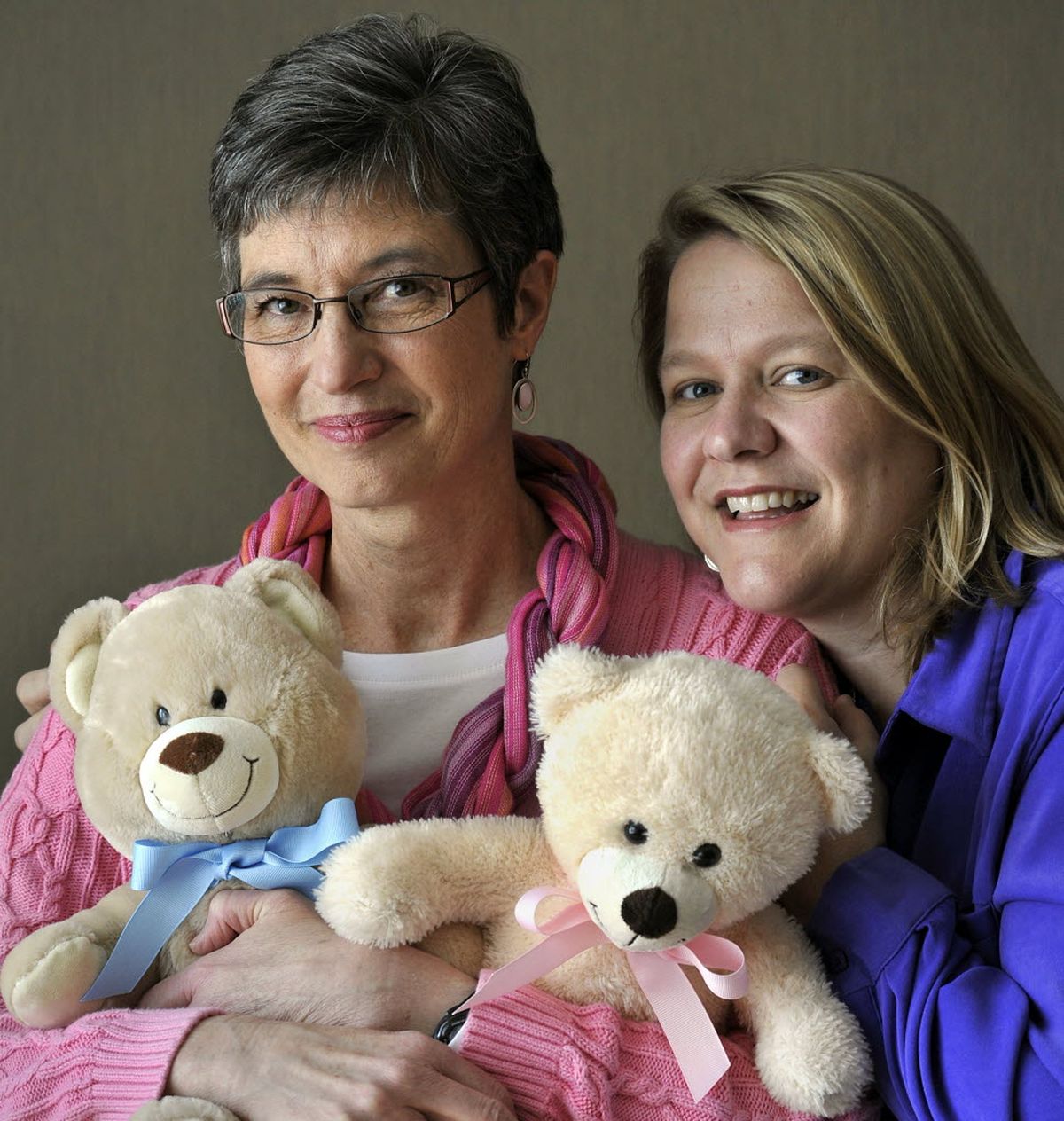Never forgotten: Program, support group help parents grieve

The heartbreaking gravestones do not tell the story of a culture that often diminished the grief of parents whose babies were stillborn or lived only a short time after birth.
But the culture is being transformed by parents and health care professionals who are pioneering programs to help with this unique grief.
Sarah Bain, who started a support group after her daughter, Grace, was stillborn in 2003, says: “We are empowering parents to say ‘yes’ to the world again.”
Forget-Me-Not
Carolyn Ringo is the coordinator of the Forget-Me-Not program at Sacred Heart Children’s Hospital. The program offers support for parents with babies diagnosed with life-threatening or life-limiting conditions.
“I consider my time with families in the midst of such grief to be sacred,” says Ringo, a nurse turned social worker.
She recently gave a lunchtime talk to nurses, doctors and staff. Though they work daily in hospitals, their eyes filled with discreet tears as Ringo talked about Forget-Me-Not.
Prematurity and its complications cause about 30 percent of neonatal deaths, she explained. Other causes include heart defects, chromosomal abnormalities and birth defects.
In ancient times, stillborn babies, and those born with birth defects, were considered evil omens, punishment by God for a parent’s misdeeds.
In modern times, mothers tend to blame themselves, Bain says.
“We (pregnant women) all get the list: Don’t drink, don’t eat soft cheeses, eat organic. So you think, ‘Was it that one day I threw up and didn’t take my prenatal vitamins?’
“If you don’t have the support, it’s easy to fall into the traps of blame and shame.”
Some parents, when given the news early in a pregnancy, decide to terminate.
But Ringo’s hope is that “when the option of continuing the pregnancy is talked about, parents are informed that there is support for them on this journey. It is important that this information is communicated to physicians who are giving families options.”
In the last 12 months, Forget-Me-Not has served 68 families at Providence Sacred Heart and Providence Holy Family.
“Parents can be fearful of meeting death,” Ringo says. “What will it be like to hold their dying baby? Will it be peaceful? Were the right decisions made about medical intervention?
“How much should baby’s siblings be told? Will they be scarred for life having to face death so early? Should they see baby after birth?”
The parents are given lasting memorials. While still alive in the womb, recordings are made of the baby’s heartbeat and placed in a stuffed bear.
Volunteer photographers take hundreds of photos of families with their babies. Plaster molds are made of feet and hands. Parents are never rushed out of the hospital after a baby has died.
These kinds of programs are still rare for medical centers. Forget-Me-Not was pioneered in 2006 by Jim Shaw, medical director of the Providence Center for Faith and Healing, and Heather Roberts, a nurse who had lost a baby and given birth to another baby with brain abnormalities.
As the program was being created, Bain provided the parent’s perspective on this unique grief.
“My baby died on May 29, 2003. And she was born on June 1,” Bain says. “That’s the kind of language you can never make sense of.”
Bain, her husband, Terry, and Grace’s older siblings, Carver and Sophia, spent time in the room with Grace.
“With all the people surrounding me in the hospital, it was still the most isolating experience of my life,” Bain says.
Grief envy
Sara Weaver-Lundberg and Arah Kunz lost babies, too. The two women told their stories to those gathered for the recent lunchtime talk by Ringo.
They facilitate support groups in the Spokane chapter of the MISS Foundation, an organization that supports parents in crisis after the death of children. Bain started the chapter a year after Grace’s death.
Ringo refers families to the support group, and she often calls on group leaders for support.
Bain and Weaver-Lundberg sometimes grapple with “grief envy,” because so little support existed for them, compared with now.
“Isabelle Roo Lundberg was born June 29, 2004, alive, and was put on life support shortly thereafter,” Weaver-Lundberg says. “She was taken off life support June 30, 2004, and died within an hour or so.
“I searched high and low for a mother who had gone through this to let me know I would be OK. But there was no support. There was no one to walk the path with me.”
Kunz was one of the first mothers to benefit from the pioneering programs. Olivia was born Nov. 11, 2007, and lived for “one hour and 53 minutes,” Kunz says.
Kunz is now a volunteer photographer in the Forget-Me-Not program.
These mothers would wish for their babies back in a heartbeat, but all have used their profound loss for a greater good.
This Memorial Day weekend, they will think of older parents who place flowers at the graves of their babies. Parents discouraged from holding stillborn babies. Parents told to forget babies who died shortly after birth.
Things are changing, one program, one parent, one story at a time.
In her emails, Weaver-Lundberg signs off with this quote: “The mention of my child’s name might make me cry, not mentioning my child’s name will surely break my heart.”